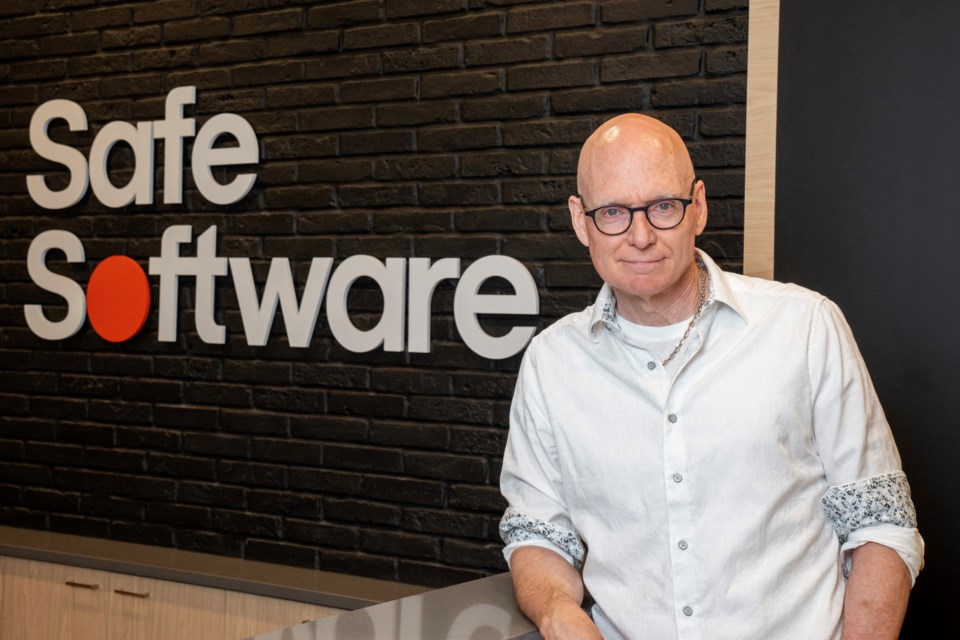For a high-tech company, Surrey’s Safe Software is an unusual case.
For one, though it was founded in the early 1990s at the beginning of the dot-com bubble and could very well have gone public, it didn’t. Instead, it stayed private and grew slowly and organically.
It’s also somewhat unique in that it never had a top dog, until just recently. For more than three decades, the company had two co-CEOs—Don Murray and Dale Lutz.
It was only this year that Murray became the firm’s sole CEO, after his long-time business partner took a buy-out.
Lutz remains an advisor for Safe Software, but no longer owns 50 per cent of the company. In January, California-based JMI Equity bought out Lutz’s share.
“And as part of that whole thing, I purchased some of the stock to become the majority owner,” Murray said. “So now I’m the majority owner, and JMI Equity is a minority owner.”
JMI’s strategy is to invest in software companies “with proven business models, rich intellectual property, high recurring revenue and long-term growth potential.”
Murray and Lutz, who both have master’s degrees in computer science, met while working at MacDonald, Dettwiler and Associates Ltd., and in 1993 they founded Safe Software.
Its core technology was, and still is, a feature manipulation engine (FME)—a platform that allowed certain types of data formats, such as geographic information system (GIS) data, which includes things like maps, to be shared across different software applications.
Unlike so many software applications that became obsolete, Safe Software was able to adapt to the many disruptive changes in the digital space, from the dawn of the Internet, to cloud computing and artificial intelligence.
“Some companies, they’re afraid to embrace new technologies because it might cannibalize their existing sales,” Murray said. “We’ve never worried about that.”
It’s fairly unusual for a company to have two co-CEOs, and rarer still for that arrangement to last more than three decades.
“Definitely, you need to be a collaborative individual and always understand the other person’s point of view,” Murray said.
Over the years, the company grew organically from two people to 270 today. The company has always been profitable, Murray said, and offers profit sharing as way of retaining and incentivizing employees.
“Our annual recurring revenue is growing by 30 per cent,” Murray said. “We’re selling into bigger and bigger organizations all the time.”
“We’ve always been really generous with profit share, giving 20 per cent of our profit to everybody. So let’s say we made we made $10 million—$2 million of that would be distributed to all the staff twice a year.”
With JMI as a new partner, Murray said the company is now poised for more rapid growth.
“What’s really exciting for me, what’s great with JMI, is now we’re really going for growth,” Murray said. “Over this year, on the hiring plan is 80 more people.”
If he could go back and do one thing differently, Murray said he would have been more aggressive on hiring more key people sooner in the company’s earlier years.
“One lesson I learned is we should have hired other people sooner,” he said. “Obviously, I have my strengths, but in the early days, we did it all.
“I would say find the best people you can, and then just trust them and support them. Business is a team sport, right? My secret is just surround myself with the best possible people and then support them.”

